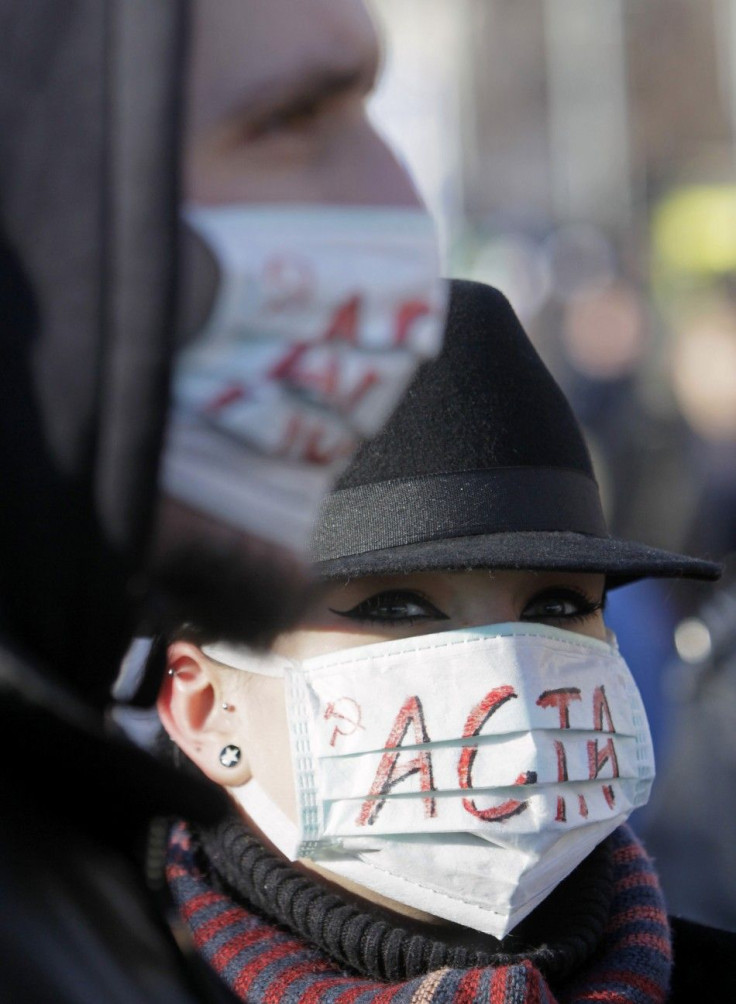With Operation Black March Boycott, Anonymous Aims to Protest ACTA, SOPA

The Operation Black March boycott, led by Anonymous aims to protest ACTA, SOPA and other measures ostensibly aimed at stopping online piracy by asking opponents of such policies not to purchase media or the month of March.
Lasting the entire month, the boycott is a coordinated effort by various factions of the Internet that have aligned against the Anti-Counterfeiting Trade Agreement, Stop Online Piracy Act, Protect IP Act, Protecting Children from Internet Pornographers Act and other such measures, and is being headed off by the Anonymous hacktivist collective.
The Operation Black March boycott is the latest in a series of grassroots protests that have been arranged in order to allow people from across the world to come together and voice their opposition to ACTA and provisions within the treaty that threaten to limit Internet freedom, impose a new censorship regime, and quash online innovation.
An online flier announcing the boycott plan and its intentions was released by Anonymous affiliates, and distributed in recent days in order to spread word about the Operation Black March boycott.
It declares that the message of the boycott is as follows: Copyrighted media won't be allowed while Internet is being censored, then went into a longer discussion of its goals, and how people can participate in the act of civil disobedience:
Why? Due to the continuous campaigns and litigations concerning Internet Censorship such as SOPA, PIPA and ACTA [and] the closure of sites such as Megaupload under the charges of 'Piracy' and 'Conspiration' we MUST take actions against Film, Music, Book and Magazine Companies and other media companies, the flier reads. How? Don't buy any magazine, newspaper, DON'T download ANY song [Legally or illegally] DON'T watch any movie at the cinema, DON'T buy ANY DVD or videogame and DON'T buy any book. It doesn't matter how much do you want, wait until April. Let's give all the governments an economic hit that can be visible.
The flier is black with stark white writing, and it features a watermark bearing an Anonymous insignia in the bottom-right corner, lending the whole page an imposing look and sense of urgency.
And on a Website made specifically for the boycott, an even clearer call to arms is laid out:
With the continuing campaigns for Internet-censoring litigation such as SOPA and PIPA, and the closure of sites such as Megaupload under allegations of 'piracy' and 'conspiracy', the time has come to take a stand against music, film and media companies' lobbyists, the site reads. The only way to hit them where it truly hurts... Their profit margins. Do not buy a single record. Do not download a single song, legally or illegally. Do not go to see a single film in cinemas, or download a copy. Do not buy a DVD in the stores. Do not buy a videogame. Do not buy a single book or magazine.
The protests comes on the heels of a series of protests aimed at stopping SOPA, PIPA and ACTA, which have had varying degrees of success. In January a coordinated anti-SOPA internet blackout led to the bill being shelved last week by the U.S. Congress.
And on Feb. 11, the world is coming together to protest ACTA in cities from New York to Budapest to Melbourne.
ACTA would set up an international legal framework to deal with issues of counterfeiting, piracy and other crimes. Instead of dealing with national laws regarding these issues, these nations would be able to adjudicate alleged crimes in a new governing body that would exist outside of the purview of the United Nations and other international institutions.
That scope is one of the main concerns of its opponents, who worry that ACTA would create a new regime of Internet censorship and criminalization of commonplace online activities. So anti-ACTA protesters have taken to the streets and the Web to voice their concerns, which appear to be gaining some traction with international leaders tasked with negotiating the treaty, which its supporters hope to have in place by June.
The Operation Black March boycott promises to be yet another source of pressure on the world's leaders to rethink their approach the Internet, and its impacts will be interesting to follow as its full scope is realized.
© Copyright IBTimes 2025. All rights reserved.





















